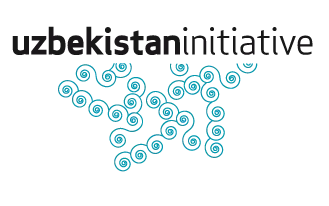Uzbekistan Initiative
Many voices, one country
The Uzbekistan Initiative was launched in early 2014 by the Central Asia Program (CAP) at George Washington University and CIDOB.

The goal of the Uzbekistan Initiative is to create a platform of discussion and knowledge exchanges that promotes Uzbek culture and society beyond the divergences in assessing its current apolitical course. It gives the floor to scholars from diverse disciplines, journalists, cultural and political activists, diaspora groups and official representatives of the country, with the hope of creating a space for discussion and interaction.
The Uzbekistan Initiative aims to fill the knowledge gap about Uzbekistan by providing independent, critical and fresh analysis by local, regional and international experts. It aims to create as well a non-partisan platform of discussion and knowledge exchanges. It looks for synergies with other projects and collaborates with the main media and scholar networks devoted to Uzbekistan. Uzbekistan is at the core of Central Asia’s future and this initiative will explore the upcoming challenges and potential for Uzbekistan and their impact on the region.
Researchers Responsible:
Nicolas de Pedro (CIDOB)
Marlène Laruell (The George Washington University)
Other Researchers:
Kristina Auvramchenko
Results
- “Explaining Political Order in Uzbekistan” de Lawrence Markowitz (Febrero de 2014)
- “Flexibility or Strategic Confusion? Foreign Policy of Uzbekistan” de Farkhad Tolipov (Febrero de 2014)
- “Digital Memory and a ‘Massacre’: Uzbek Identity in the Age of Social Media” de Noah Tucker (Febrero de 2014)
- “Navro’z and the Renewal of Uzbek National Culture” de Laura Adams (Febrero de 2014)
- “Private initiative, religious education and family values. A case study of a brides’ school in Tashkent” de Rano Turaeva (Febrero de 2014)
- “Seeking Divine Harmony: Uzbek Artisans and their Spaces” de Gul Ozcan (Febrero de 2014)
- “Hayrullo Hamidov and Uzbekistan’s culture wars: how soccer, poetry, and pop-religion are ‘a danger to society’” de Noah Tucker (Febrero de 2014)
- “Uzbekistan at a crossroads: Main developments, business climate, and political risks” de Ahmed Said (Marzo de 2014)
- “Doing Business in Uzbekistan: Formal Institutions and Informal Practices” de Erica Marat (Marzo de 2014)
- “The Irano-Uzbek relations in the context of geopolitical changes in Central Asia” de Guli Yuldasheva (Marzo de 2014)
- “Uzbekistan’s National Security Strategy: Threat and Response” de Richard Weitz (Marzo de 2014)
- “On Methodology and Logical Epistemology in Humanities and Social Sciences in Central Asia” de Valery Khan (Marzo de 2014)
- “The Role and Place of Oral History in Central Asian Studies” de Timur Dadabaev (Marzo de 2014)
- “China’s Economic Presence in Uzbekistan: Current Status and Key Recommendations” de Vladimir Paramonov (Abril de 2014)
- “Central Asia and the UN: Partnership in Security and Sustainable Development” de Mirzohid Rahhimov (Noviembre de 2014)
- “Relationship between Russia and Central Asia” de Mirzohid Rakhimov (Noviembre de 2014)
Partners:
CAP (Central Asia Program) at George Washington University